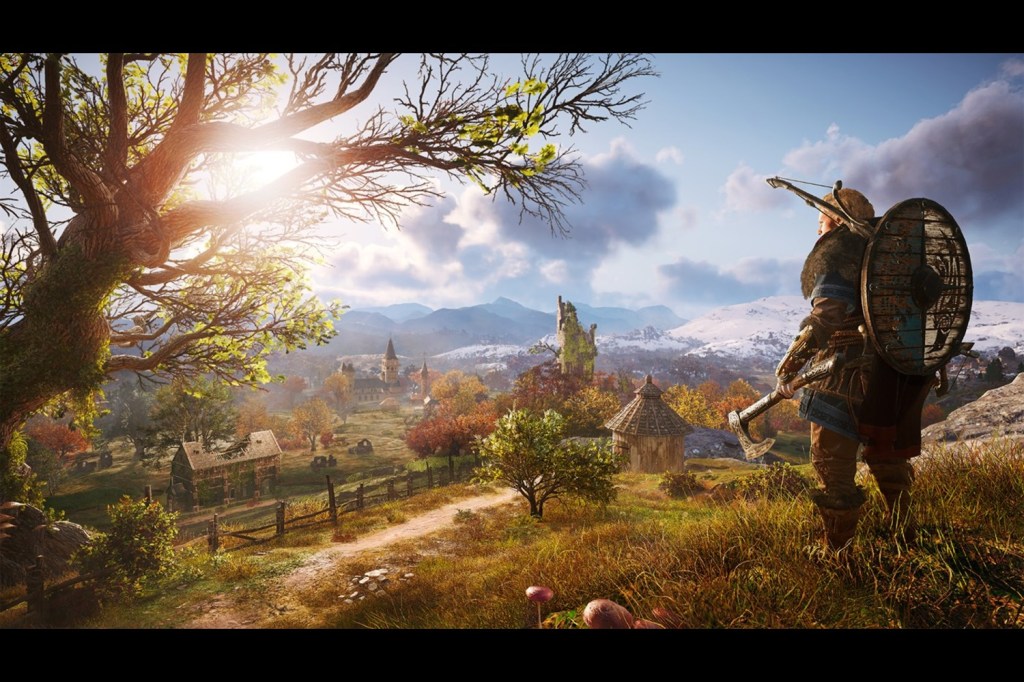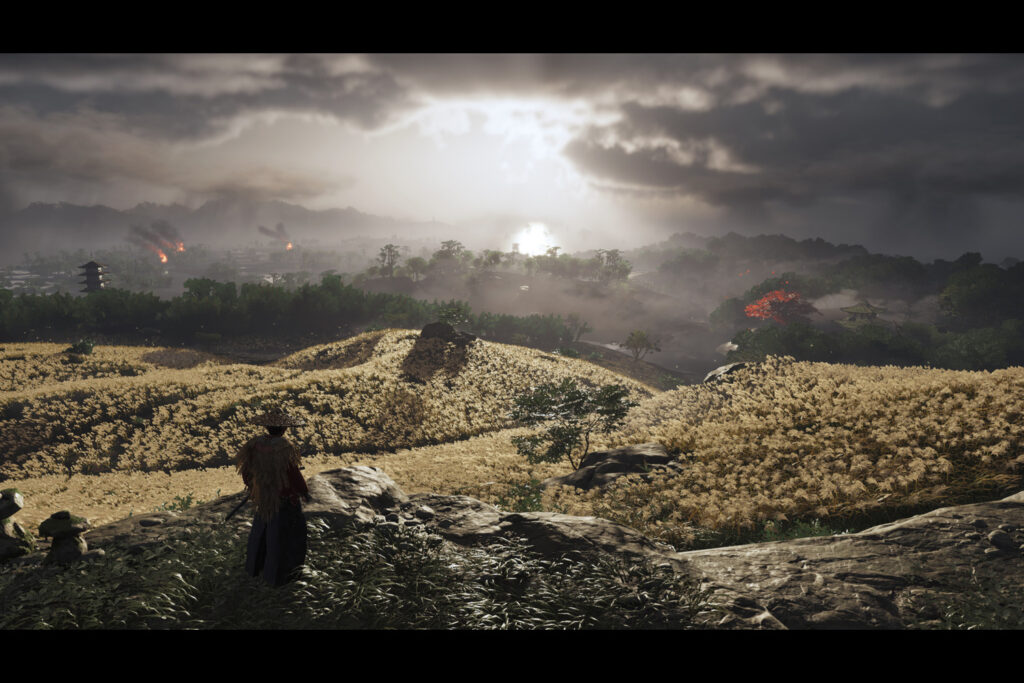Take a look at my PSN library, and you’ll find a litany of unfinished games: Dave the Diver, FF7: Rebirth, Guardians of the Galaxy, God of War: Ragnarok, all with a story completion percentage well under that credit-rolling 100%. I feel a small sense of shame at not breaching their finales, and it’s not a stretch to imagine all these acclaimed titles silently judging me from my console’s SSD.
This phenomenon isn’t just a me problem. According to recent data, only 30% of PlayStation users finished Cyberpunk 2077, while a paltry 17% of players finished Assassin’s Creed Valhalla.

Sure, gamers like me are getting older, with more responsibilities and less opportunity to fire up our machines. However, something other than time might be holding us back from clearing our backlog. We need to look at the industry to find out what gives.
Let’s deal with the obvious answer first — games are much bigger these days. Referred to by many as “Ubisoftication,” where every title just simply has to feature an immersive world spanning a hundred square miles featuring no less than 25 outposts to liberate, 50 radio towers to clamber, 200 treasure chests and 100 beasts to hunt.
The landscape is now one big chore list. Not that it’s relegated to Ubisoft titles either — one egregious sidequest in The Legend of Zelda: Breath of the Wild tasked you with finding no fewer than 900 in-game Korok seeds, before rewarding you with a golden poop (rude).
Still, call me a sucker for being drawn to these games off the back of titles such as Red Dead 2, Horizon Zero Dawn and Ghost of Tsushima, which all feature a rich narrative, rousing score, memorable characters, and unparalleled freedom — all that AAA goodness.
The open world genre has been a tried and tested playstyle for decades, and developers have been desperate to keep their claws hooked into gamers, spending hundreds of millions on these titles and ramming them full of side quests galore. In crafting these expansive environments for us to explore, they’ve made the moment-to-moment gameplay that was once popular now extremely formulaic.
These games pack in upwards of 25 hours of content for just the basic story campaign, while completionists need to lock in over 75 hours to nab that hallowed Platinum. I’ve dropped 100+ hours in Assassin’s Creed Odyssey, and there was so much of the map littered with icons to explore and investigate. Doing at least some of that then, becomes a part-time job, often turning gamers off way before the endgame.
It’s not just endemic in RPGs either, with a raft of sports games, shooters, fighting games and other sandbox titles offering a variant of the open world hub or live service models designed to siphon your precious limited time.
Still, here’s my take on the real reason — games are so ubiquitous and readily accessible now. Steam released over 18,000 games in 2024 — compare that to around 1,700 just 10 years ago. And with both Microsoft and Sony offering their respective Game Pass and PS Plus libraries, even console gamers have a huge compendium at their fingertips, leading to a heavy case of what psychologists call the paradox of choice.
When faced with a slew of titles, we’re actually expending more effort to choose and are more likely to experience regret and dissatisfaction with our eventual choice, a bit like scrolling endlessly on your Netflix just to pick something to watch.
Gamers might remember a time when all they could play for long stretches was a single game. For me, that was 1998, when my teenage self tucked a freshly bought copy of GoldenEye 007 on the N64 into my backpack and hurried home. For the next few months, I’d play each sleuth-ly level on the game’s several difficulties until the treacherous Alec Trevelyan’s death count matched Sean Bean’s onscreen deaths.
Fast forward to today, with dozens of games a short download away and a backlog forming, the choice can be overwhelming, and we generally feel less “attached” to the titles we pick and play as a result. More, in this instance, actually means less.
Is there a way out of this messy compendium of completion-less campaigns? Short of cancelling your subscriptions and going physical only, I’d recommend restricting yourself to one game at a time. You could also mix up genres to alleviate open-world fatigue — after sunsetting a massive RPG, get engrossed in a first-person shooter or 2D platformer instead.
The industry is also slowly taking notice, with some pushback on some copy and pasting those samey open world franchises. There’s also increasing recognition for shorter AA titles — basically AAA without the bloat. Recent games like Split Fiction and Clair Obscur: Expedition 33 have sold in their millions, causing many developers to take heed.
And in the wake of a deluge of external factors, such as the exponentially rising cost of making games and doing business, some predict that developers will set their sights on crafting smaller games with tighter narratives. And somehow, having 50 eight-hour games on my to-play list feels so much better than eight 50-hour games.
Read the full article here
